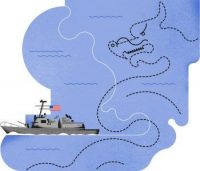
What to tell Xi
President Obama should not let slide his last summit meeting with Chinese Communist Party and People’s Liberation Army (PLA) leader Xi Jinping, who needs to hear that he is pitching Asia toward war and that the United States will finish what he starts.
Of course, China hopes to avoid such complaints during the September 4-5 G-20 Summit in Hangzhou, China. But as China appears ready to increase its aggressive pressures against its neighbors there is little time to set clear red lines and to prepare for conflict so as to better deter it.
Following the July 12 ruling by the Permanent Council for Arbitration in The Hague that China’s expansive Nine-Dash-Line, and specifically its newly reclaimed island military base on Mischief Reef, are both illegal under the Law of the Sea Treaty, it is now necessary for the United States to declare that China’s actions in the South China Sea are a threat to peace in Asia.… Seguir leyendo »









